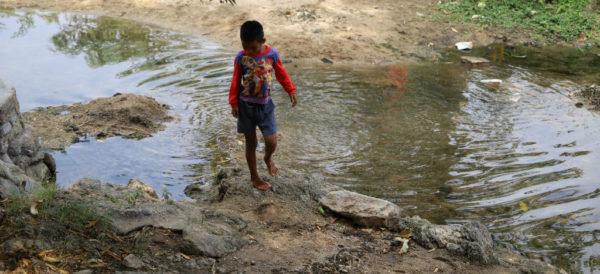
On February 4, 2020, at the opening of the fourth session of Mexico’s 64th legislative assembly, the first Citizen’s Law Initiative was presented before the Chamber of Deputies inaugurating citizen participation in making the laws that govern us. The subject of this initiative could not be more sensitive and transcendent -- a General Water Law Initiative, backed by the signatures of more than 198,000 citizens, whose signatures will be validated by the INE.
The Initiative is the result of an exemplary 8-year process ,coordinated by “Agua para Todos, Agua para Vida (Water for All, Water for Life}, of discussions in assemblies and meetings in ejidos, towns, municipalities and cities and including participation of water defense groups and communities, throughout the country. This great mobilization seeks to reverse the serious water crisis in Mexico, caused by the abuses of large water concessionaires, protected by the system of concessions established by the current National Water Law, published in 1992 as a prelude to the signing of the North American Free Trade Agreement (NAFTA). In this law, water concessions are administered by CONAGUA, an institution that operates without counterbalances, ignoring the constitutional rights to water of ejidos, indigenous peoples and communities and the human right to water of many of the Mexicans.
To speak of the water crisis in Mexico implies referring to the overexploitation of 108 watersheds and 115 aquifers, 60% of the seriously contaminated rivers and lakes, more than half a million water concessions granted for periods of 30 years in thousands in national waters and also waters located in the territories of indigenous peoples. Many of the concessions have been granted to mining, fracking, brewery and real estate corporations, who have preferential access to water that violates the human right to water of towns and cities. Conagua’s operations have also generated a huge inequality in access to water, with 70% of the concessioned waters held by 7% of the millionaire water concessionaires, who most often do not pay for water rights, while 265 of the companies in the country discharge wastewater without authorization.
The Citizen’s Initiative proposes various measures to protect and restore watersheds and bodies of water, curbing overexploitation and pollution and curbing privatization, privileging the human right to water and the use of water for food sovereignty and prohibiting new water concessions for toxic mining and fracking. It also proposes measures to stop the hoarding and impunity of large users and to favor equality: shortening the time of concessions and conditioning them on good use; ending the sale and speculation with concessions and modifying the NOMs. The Iniative also seeks to close the doors to the privatization of water resources. Finally, it proposes measures for democratic and participatory water governance, as a fundamental condition for its sustainable management, which includes: respect for the rights of ejidos, communities and indigenous peoples, the co-administration of water in the territories; the democratization of municipal systems and state commissions, as well as the recognition of community water systems as subjects of law and water management in the hands of representative Councils, with the participation of social comptrollers and water defenders in the territories.
The presentation of the Citizen’s General Water Law Initiative is a watershed in democratic life and in the construction of sustainability in Mexico, which deserves and requires broad citizen support and positive response from legislators. The issue of water matters to us and it is up to all of us, we hope in the coming days to see a legislative response of the magnitude of the citizen mobilization that the issue has generated. We expect this 2020 to be the year in which the pending mandate to develop the General Water Law is fulfilled, a law at the service of the public interest, not of the private interest, as the law currently in force.
Leticia Merino Pérez is the coordinator of the Environmental Agenda 2018, prepared by the University Seminar on Society, Environment and Institutions (SUSMAI) of the National University of Mexico (UNAM},
